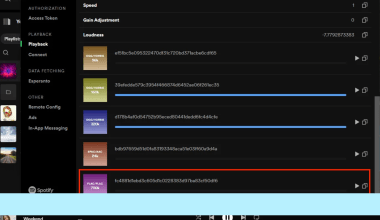Music is a universal language, speaking to emotions in ways that words often can’t. At the heart of every memorable tune lies the genius of a music composer. They are the creative minds who translate emotions, stories, and ideas into sound. But what does it take to become a music composer? What inspires them to create melodies that move millions?
In this blog, we dive deep into the life of a music composer. Whether you’re an aspiring musician, a curious listener, or someone exploring career paths, this guide will illuminate the fascinating process behind composing music. Let’s tune in!
The Role of a Music Composer
At its core, the job of a music composer is to create original music. This might seem straightforward, but the role is incredibly multifaceted. A composer might work on a film score, a commercial jingle, or a classical symphony.
Their primary objective? To tell a story through sound. For example, think of your favorite movie. Imagine how dull certain scenes would feel without the right music to heighten the tension or evoke sadness. The composer ensures every note enhances the experience.
How Music Composers Work
Step 1: Understanding the Project Every composition begins with understanding its purpose. Is it for a film? A concert? A commercial? Each project demands a unique approach. For instance, composing for a film requires a deep understanding of the narrative. The music must seamlessly complement the visuals and dialogue.
Step 2: Gathering Inspiration Music composers often draw inspiration from various sources. Nature, personal experiences, cultural influences, or even other forms of art can spark creativity. Some composers find that stepping away from their instruments and immersing themselves in the world around them leads to the best ideas.
Step 3: Experimentation Composing isn’t a linear process. Composers play with different melodies, harmonies, and rhythms until they find the perfect combination. Trial and error are part of the journey.
Step 4: Refinement Once the main idea takes shape, the composer refines it. This might involve adjusting tempos, layering additional instruments, or simplifying complex sections.
Essential Skills Every Music Composer Needs
- Musical Knowledge: A strong grasp of music theory, scales, chords, and rhythms is essential.
- Creativity: The ability to think outside the box and craft unique melodies.
- Technical Proficiency: Familiarity with instruments and music software is crucial in today’s digital age.
- Emotional Intelligence: Great composers understand human emotions and know how to translate them into sound.
- Collaboration: Many projects involve working with directors, producers, or musicians. Being a team player is key.
Different Types of Music Composers
Not all music composers are the same. Depending on their area of expertise, they can specialize in:
- Film Score Composers: Creating music that enhances movies or TV shows.
- Classical Composers: Writing symphonies, operas, or chamber music.
- Pop Songwriters: Crafting catchy tunes for mainstream audiences.
- Video Game Composers: Designing immersive soundscapes for games.
- Commercial Composers: Producing jingles and background scores for advertisements.
Each type of composer brings a unique flavor to the world of music.
Challenges Music Composers Face
Life as a composer isn’t always harmonious. Here are some hurdles they often encounter:
- Creative Blocks: Even the most talented composers experience moments when ideas don’t flow.
- Tight Deadlines: Many projects come with strict timelines, leaving little room for experimentation.
- Balancing Art and Commerce: Composers often juggle between creating meaningful art and meeting commercial demands.
- Technological Advancements: Keeping up with the latest music software and tools can be daunting.
Despite these challenges, the rewards of creating music far outweigh the difficulties.
Tips for Aspiring Music Composers
If you dream of becoming a music composer, here are some actionable tips:
- Study Music: Take courses, read books, or enroll in formal education to deepen your knowledge.
- Practice Regularly: Dedicate time daily to composing, experimenting, and refining your craft.
- Listen Actively: Analyze music from different genres and eras to broaden your understanding.
- Network: Attend music events, collaborate with other artists, and build connections.
- Embrace Technology: Learn to use digital audio workstations (DAWs) and other composing tools.
- Stay Persistent: Success in composing requires patience and resilience.
Famous Music Composers and Their Legacy
Throughout history, many composers have left an indelible mark on the world:
- Ludwig van Beethoven: Known for his powerful symphonies and emotional depth.
- John Williams: The maestro behind iconic scores for films like Star Wars and Jurassic Park.
- Hans Zimmer: Renowned for his work on movies like Inception and The Lion King.
- A.R. Rahman: Famed for blending traditional Indian music with contemporary sounds.
These composers inspire countless others to pursue the art of making music.
The Future of Music Composition
With advancements in technology, the world of music composition is evolving rapidly. Artificial intelligence and machine learning are now being used to assist composers. Tools like AI-generated melodies provide a starting point, but the human touch remains irreplaceable.
Moreover, the rise of streaming platforms has democratized music distribution, allowing independent composers to reach global audiences.
Conclusion
Becoming a music composer is a journey of passion, dedication, and creativity. It’s about more than just creating sound—it’s about crafting experiences and evoking emotions. Whether you’re composing for yourself, an audience, or a project, remember that every note you write contributes to the rich tapestry of music.
So, the next time you hear a melody that touches your soul, take a moment to appreciate the composer behind it. They’ve poured their heart and soul into creating something truly special.
For further reading, explore these related articles:
- Pandora Music: Your Ultimate Guide to Personalized Streaming
- PK Latest Songs: A Musical Journey to Remember
For additional resources on music marketing and distribution, visit DMT Records Private Limited.






